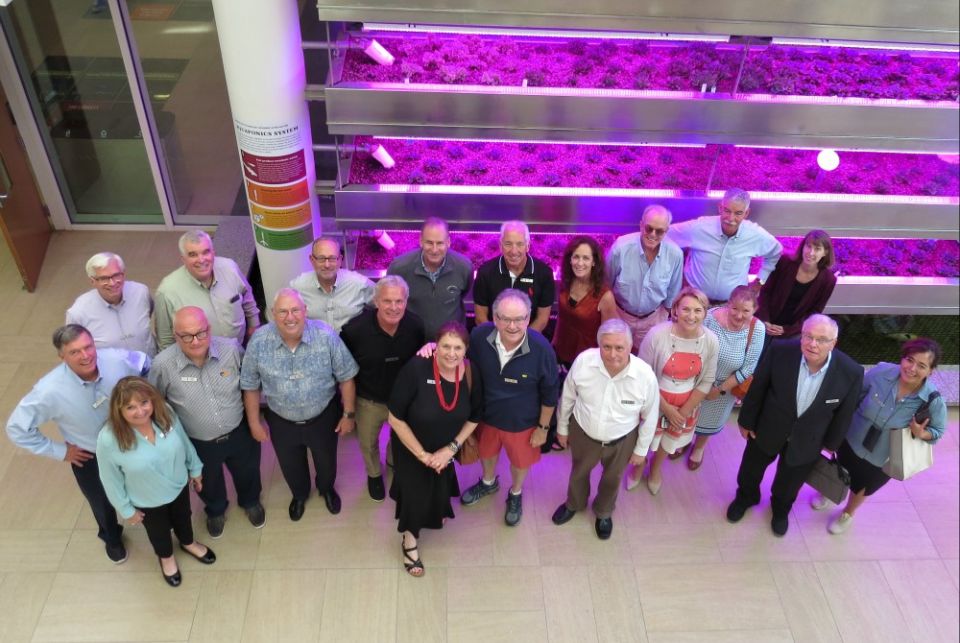With support from a grant from the Theology Program, Loyola University Chicago—with partners Santa Clara University, Georgetown University, and Boston College—launched the Ignatian Legacy Fellows Program for aging professionals who are considering retirement. The program offers participants an opportunity to contemplate the next phase of their lives through a spiritual—specifically Jesuit—lens, fostering close relationships with peers while exploring religious questions and the aging process.
Thalia Doherty retired from a successful career in advertising more than five years ago.
An alumni and Board of Regents member of Santa Clara University, and mother of four, Doherty took a “leap of faith” last year, when she and her husband joined a yearlong pilot fellowship program with 14 other retirement-age participants.
Now halfway through the Ignatian Legacy Fellows Program, Doherty says she was surprised by how quickly she gained “a closeness and a vulnerability” with her new peers, who now meet once per week to video chat about their experiences navigating the coronavirus pandemic.
The new program — hosted by Loyola University Chicago, Santa Clara University, Georgetown University and Boston College — offers professionally accomplished older adults a space to learn about the global network of the Society of Jesus while exploring the “second stage of life” guided by the spiritual exercises of St. Ignatius.
The program invites, according to their promotional materials, “institutional leaders, C-suite executives, nonprofit directors, and business owners” who are contemplating retirement, retired or transitioning into retirement, to a space to explore religious and spiritual questions, and the aging process.
Retirement is a “new vocational moment” that “begs a discernment process,” according to John Fontana, co-director of the Ignatian Legacy Fellows Program at Loyola University Chicago.
The need for spiritual accompaniment, and the lack of spaces that offered this kind of guidance to retirement-aged people, sparked the creation of the program, he said. “As you age, the death question starts to move in on you,” Fontana said. “Religious questions get to be more powerful.”







